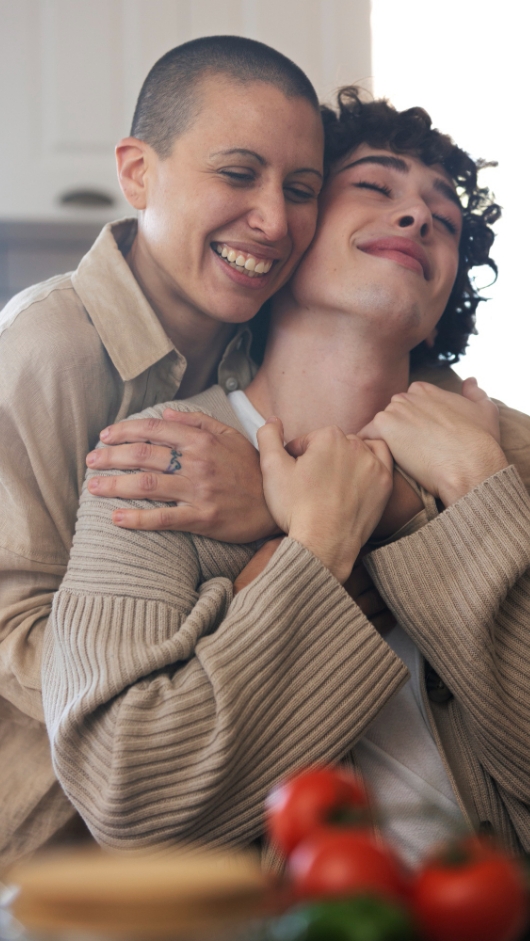Toowoomba Obstetrics and Gynaecology is celebrating love and diversity this Pride Month. Pride Month is a time for celebration, acceptance, and empowerment, where we recognise the challenges faced by many members of the LGBTQI+ community, and work to create a world enveloped in equality. TOAG stands with the LGBTQI+ community and is committed to creating a safe and welcoming space for everyone who walks through our doors.
Sexual and reproductive healthcare services for the LGBTQI+ community often remain widely unknown or undiscussed, with this unawareness often leading to limited access to appropriate care. In fact, one healthcare study found that 42.5% of LGBTQI+ individuals have experienced challenges with regard to receiving reproductive and sexual health services.
At TOAG, we work to ensure every person has the opportunity to receive sexual and reproductive health services, support, and respectful care, empowering individuals to make informed decisions about their health. We want to make sure LGBTQIA+ individuals and their support systems are aware of the tailored services we provide to better equality in the healthcare sphere. Below we have summarised the diverse healthcare services provided at TOAG, so you can have all the initial information you need in one place!
Gender Diverse Fertility
TOAG pairs with Rainbow Fertility, Australia’s first dedicated LGBTQI+ fertility and IVF service provider. We offer numerous fertility options to meet the individual needs of yourself and your partner.
Egg and sperm donations from known or unknown donors are available for couples who are unable to conceive with their own eggs or sperm. Donors undergo a screening process, including medical and psychological evaluations, to ensure they meet the necessary criteria. Egg or sperm donations play a vital role in assisted reproductive technologies, such as in vitro fertilisation (IVF) or artificial insemination, to assist individuals or couples in achieving their desired pregnancies.
Donor insemination occurs when a donated sperm cell is inserted into the uterus to form a pregnancy. We offer natural cycle insemination, clomiphene citrate ovulation induction, and FSH ovulation induction at our clinic.
In-vitro fertilisation (IVF) occurs when an egg and sperm cell are joined artificially in a laboratory, and the fertilised egg is inserted into the uterus.
Surrogacy is another fertility option beneficial for many members of the LGBTQI+ community. Here, an individual with a uterus agrees to give birth to a child of another person or couple. In traditional surrogacy, the surrogate uses her own egg to conceive the child, and artificial insemination fertilises the egg. In gestational surrogacy, the surrogate carries a child conceived using assisted reproductive technologies such as in vitro fertilisation. The intended parents or donors provide the eggs and sperm, which are fertilised in a laboratory to create embryos. It is important to note that there are legal considerations surrounding surrogacy agreements, which are addressed here by the Australian Government. TOAG also provides a detailed guide to entering a surrogacy agreement here.
Sexual Health Services for the LGBTQI+ Community
TOAG provides contraceptive options for individuals of all sexualities and gender identities, and welcomes questions surrounding their uses and the best options for specific couples.
Barrier methods, such as condoms, can be used to prevent both unintended pregnancies and sexually transmitted infections (STIs). As condoms prevent STI transmission, it is important for individuals in heterosexual and homosexual relationships to utilise these devices. Condoms are available in various sizes and materials to accommodate different preferences and needs.
Hormonal contraception, such as birth control pills, injections, or implants, can be used by individuals with a uterus to prevent pregnancy. These methods also help regulate menstrual cycles, reduce menstrual pain, heavy bleeding, and hormonal acne.
Intrauterine devices (IUDs), both hormonal and non-hormonal, can be used by individuals with a uterus as a long-acting and reversible contraception method. They are highly effective and do not require daily maintenance.

Support for Sexual Health Conditions
Our experienced team at TOAG diagnoses, manages and treats various sexual health conditions. We welcome individuals of all gender identities, and will treat your sexual health conditions with respect, sensitivity, confidentiality and compassion, making sure you feel supported, accepted and comfortable. If you are experiencing menstrual, abdomen, uterus, vaginal or vulval concerns, please ask your GP for a referral to TOAG. Conditions we manage and treat for all individuals with a uterus include menopause, pelvic pain, endometriosis, polycystic ovarian syndrome (PCOS), incontinence, prolapse, and period-related conditions.
Adolescent Gynaecology for the LGBTQI+ Community
Teenagers have unique bodies that must be treated differently to that of adults, as they are still developing and growing. TOAG is experienced in providing gynaecological support to adolescents, and specifically treats and manages the following for adolescents with a uterus: menstrual conditions, pelvic pain, vulval conditions, PCOS, endometriosis, congenital abnormalities, developmental disorders, and early puberty. If you are an adolescent – or a parent of an adolescent – who is experiencing symptoms of any of these conditions, please book an appointment at TOAG. We are accepting, discrete, and trustworthy, and look forward to supporting your health and wellness. Learn more about adolescent gynaecology here.
Our team of dedicated gynaecology and obstetrics professionals is here to provide comprehensive care tailored to your unique needs. Your comfort, trust, and well-being are our top priorities, and we are here to support you throughout your reproductive health journey. Let's embrace love, acceptance, and equality this Pride Month, and promote equality and accessibility in sexual and reproductive health domains.
